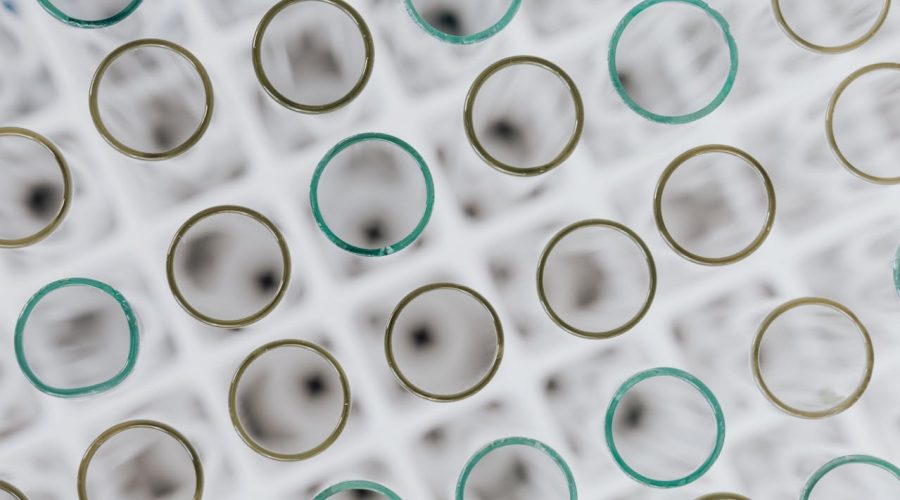AI’s Role in Advancing Medical Diagnostics
Transforming Healthcare with Artificial Intelligence
Artificial intelligence (AI) is revolutionising the medical field, particularly in diagnostics. It enhances accuracy, improves efficiency, and enables early disease detection. A UK hospital has recently implemented AI technology to detect lung cancer through chest X-ray analysis, significantly improving diagnostic efficiency. This advancement highlights AI’s growing role in healthcare, offering the potential for earlier detection and more effective treatment.
AI-Powered Lung Cancer Detection
Lung cancer is one of the leading causes of cancer-related deaths worldwide, and early diagnosis significantly improves survival rates. The implementation of AI in chest X-ray analysis allows for faster and more precise identification of potential malignancies. AI-driven systems can analyse imaging data with remarkable accuracy, flagging abnormalities that might be overlooked in traditional radiology processes. By automating this aspect of diagnostics, hospitals can enhance workflow efficiency, allowing radiologists to focus on complex cases requiring human expertise.
Enhancing Accuracy and Efficiency in Diagnostics
Traditional diagnostic methods rely heavily on human interpretation, which can sometimes lead to errors or delays due to the high volume of cases radiologists handle. AI algorithms, trained on vast datasets, have demonstrated the ability to match or even surpass human performance in image analysis. For instance, a 2021 study published in The Lancet Digital Health found that AI outperformed radiologists in detecting breast cancer from mammograms, reducing false positives and improving early detection rates. These AI-powered tools help healthcare professionals identify patterns indicative of disease, reducing misdiagnosis and enabling quicker interventions.
The Potential for Early Disease Detection
Beyond lung cancer, AI is being integrated into various areas of medical diagnostics, including breast cancer screening, cardiovascular diseases, and neurological disorders. AI models can detect subtle anomalies in medical imaging and patient data, often at earlier stages than conventional methods. This capability is particularly crucial for conditions where early intervention can dramatically improve patient outcomes.
Challenges and Considerations
While AI offers transformative potential in medical diagnostics, several challenges must be addressed. Ensuring AI systems are rigorously tested and validated for accuracy across diverse populations is critical. Bias in AI training datasets can lead to disparities in diagnostic accuracy, particularly among underrepresented demographics. If AI models are primarily trained on data from specific populations, they may be less effective when diagnosing individuals from different ethnic or socioeconomic backgrounds. Addressing this issue requires diverse and representative training datasets, ongoing validation studies, and transparent model development to ensure equitable healthcare outcomes.
Ethical concerns, such as patient data privacy and the need for transparent decision-making processes, must also be carefully managed. Additionally, AI should be viewed as a supportive tool rather than a replacement for medical professionals, ensuring that human expertise remains central to patient care.
The Future of AI in Healthcare
Recent AI Applications in Healthcare
- AI in Stroke Diagnosis: Researchers at Stanford University have developed an AI tool that rapidly detects stroke symptoms from brain scans. This AI system significantly reduces diagnosis time, allowing for quicker intervention and better patient outcomes.
- AI in Drug Discovery: Pharmaceutical companies like Insilico Medicine are leveraging AI to accelerate drug discovery. AI models analyse massive datasets to identify potential drug candidates, reducing the time and cost required for new treatments.
- AI in Mental Health: AI-powered chatbots and virtual therapists, such as Woebot and Wysa, provide mental health support. These tools use natural language processing to offer cognitive behavioural therapy (CBT) and emotional support to individuals experiencing anxiety and depression.
The successful implementation of AI in lung cancer detection is a testament to its growing impact in the medical field. As AI continues to evolve, its applications in diagnostics will likely expand, leading to more precise, efficient, and accessible healthcare services. Hospitals and research institutions worldwide are investing in AI-driven solutions to enhance patient care and improve healthcare outcomes. For example, the UK’s NHS has launched AI initiatives for cancer detection, while the Mayo Clinic in the US is using AI to improve cardiovascular diagnostics. Similarly, Google’s DeepMind has developed AI systems capable of diagnosing eye diseases with accuracy comparable to human experts.
AI’s role in medical diagnostics is only beginning to unfold, but its potential to revolutionise the industry is undeniable. By improving diagnostic accuracy, enabling early disease detection, and optimising workflow efficiency, AI is already transforming healthcare. As these technologies continue to evolve, they promise to further enhance patient outcomes and streamline medical processes. By embracing AI responsibly and integrating it with human expertise, the future of medical diagnostics looks promising, with improved patient care at its core.



